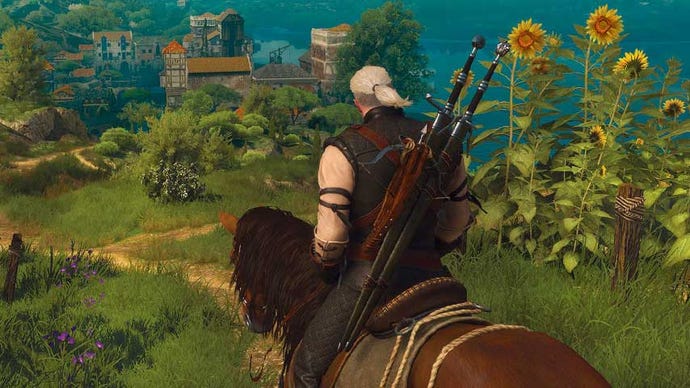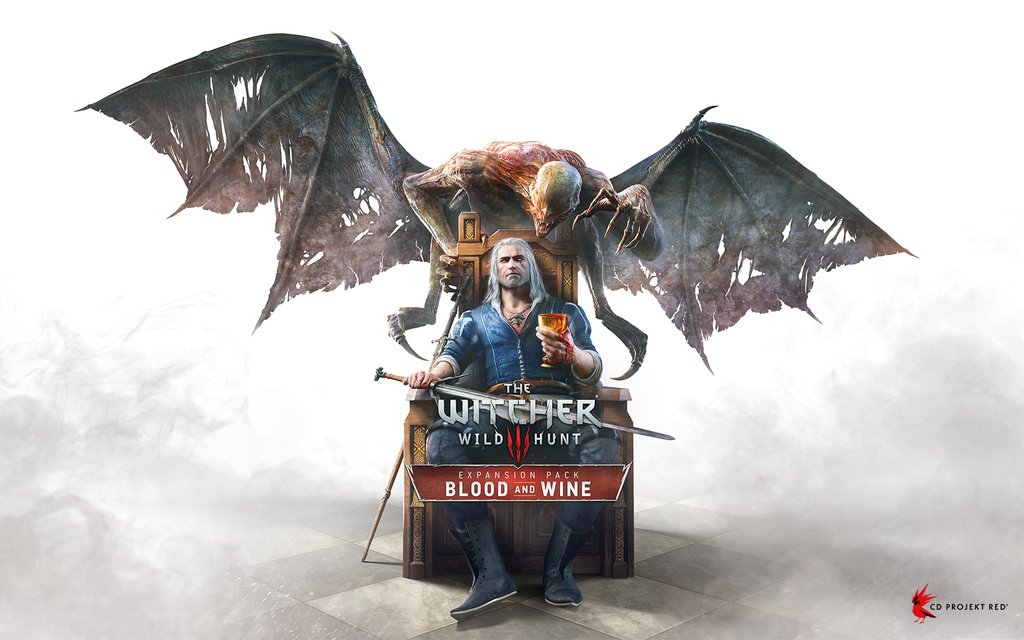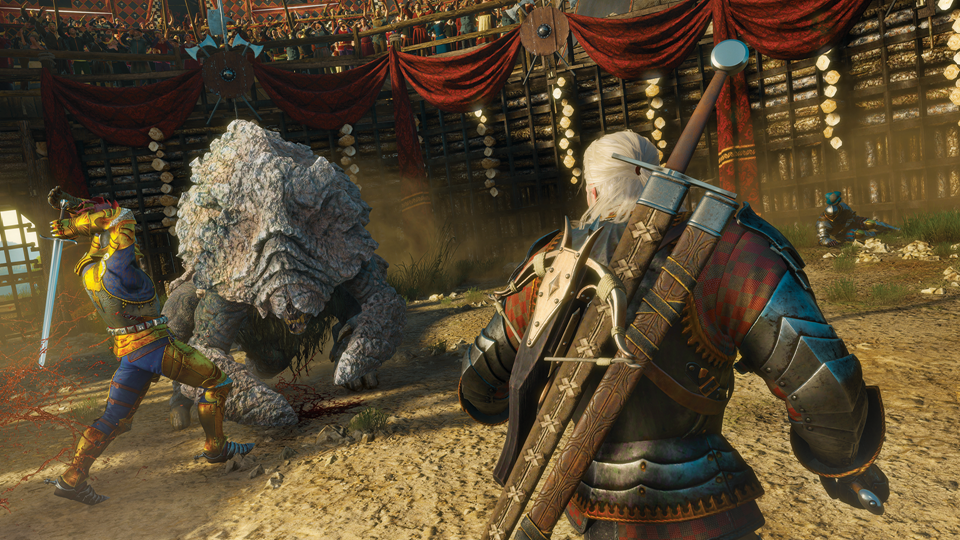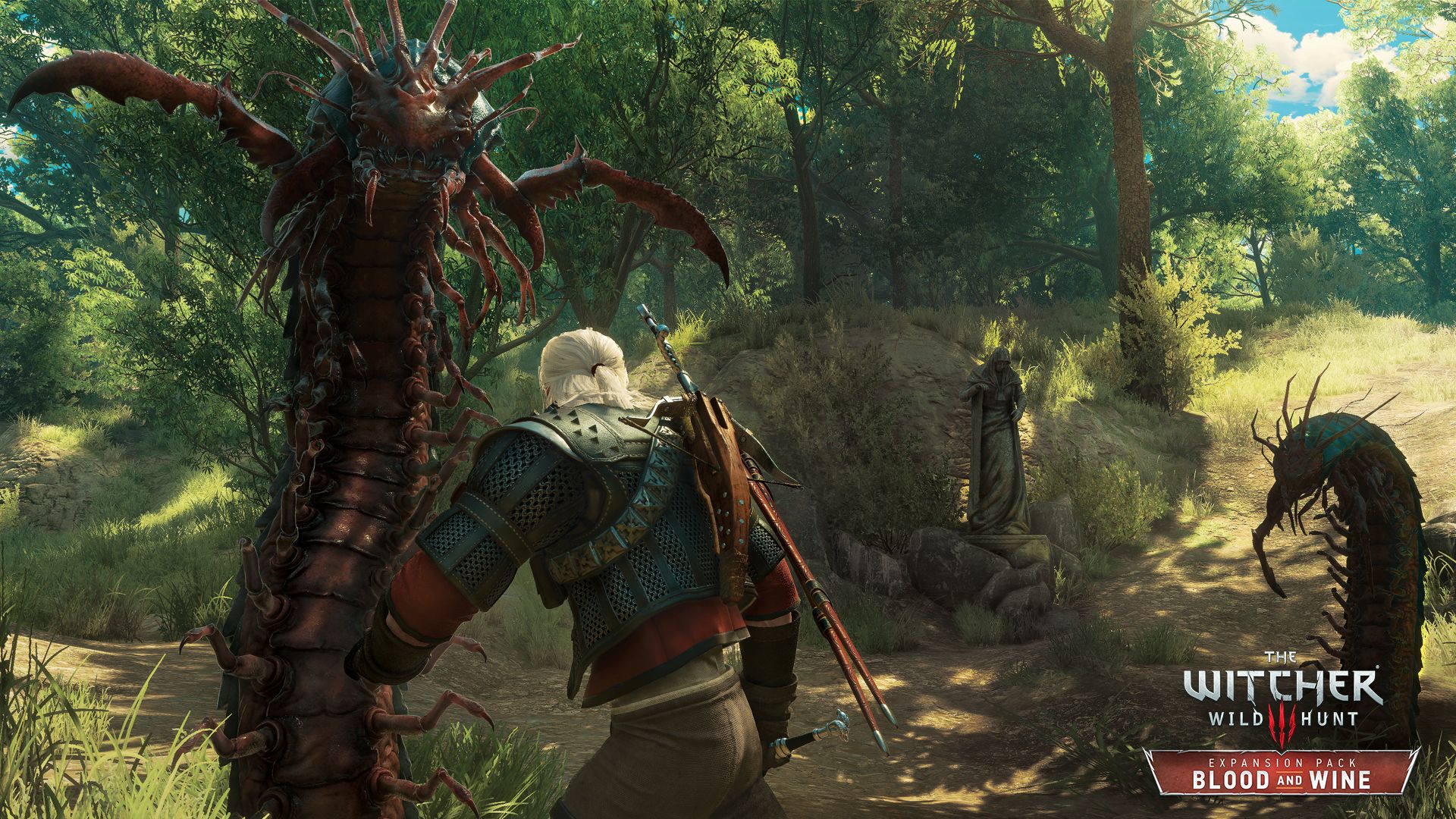The Witcher 3: Blood and Wine review - this is what we came for
CD Projekt RED is at the top of its game as it sends off a series that stands among the best mainstream gaming has to offer.
The Witcher 3: Blood and Wine review - this is what we came for
Three different people have messaged me about something that happens a few minutes into Blood and Wine, the second and final expansion for The Witcher 3: Wild Hunt.
CD Projekt RED’s writing works its magic throughout it all. Personality is what keeps players coming back.
It doesn't much matter what it is; it's just a tiny throwaway joke, and not that interesting independent of the experience. But for fans of The Witcher 3, it's like a flag going up, or a starter pistol firing. It's a signal that means "this is what you came for": CD Projekt RED's lauded signature style.
Blood and Wine starts the way so many Witcher 3 experiences do: you meet some randos you may or may not remember from the books or past games, fight some other randos, get stomped into the ground a few times by a monster, and poke around with Witcher Senses while Geralt rumbles observations ranging from trite to poignant to laugh-out-loud funny. It's alright, you know? It's video games. Maybe you wonder if you can really be bothered doing the whole open world questing thing again.
Moments later you're in an inn mediating a shouting match between a loquacious peasant determined to enjoy his 15 minutes of fame and a hedonistic knight impatient with the whole world because the grisly murder you've come to investigate means his favourite meal is off the menu - where other games would have had a deeply seriously relaying of facts, or a comedic scene in which the player character took the primary, wise-cracking role. It wasn't until the first pair of blood-spattered boobs that I said "well this is certainly a Witcher game isn't it" but for me that was the moment in which we really started Witcher'ing.
Whether you hare off after the startlingly colourful array of secondary quests or pursue the technicolour main quest, as soon as CD Projekt RED dumps you out into the gloriously beautiful Toussaint (finally, our expectations are answered) all the hallmarks of the franchise shine forth. The constant menace of the monstrous world. The warts-and-all crowds who shelter from the dangers beyond the walls. The hand-crafted wilderness with its breathtaking moments of beauty. Geralt's quiet humour. The distinctly European flavour of the setting. Being repeatedly smashed into paste by an enemy as you fail the split-second multiple choice test of block-dodge-roll again (turn the difficulty down, nobody cares and you'll still get pasted).
The story is perhaps less perfect than that of Hearts of Stone, with some wobbles of pace and logic, but the trade-off for this is a degree of complexity in branching narratives. There are multiple endings, and significantly more paths to them; at one point you'll have to choose between one of two completely different mission paths, and then they wind back together for the ending in ways that are still giving me headaches. This is something I enjoy very much.
Throughout it all, CD Projekt RED's writing works its magic. The themes of consequence and choice are fantastic, but what keeps players coming back is the personality. I mentioned before that the Witcher has a distinctly European flavour, and I don't just mean the geographical setting; there are elements running through you'd never find in American media. That's not a criticism, merely an observation of difference - and I don't just mean that characters swear and get their bits out, either.
It’s a world where you can meet a random bloke in a pub and he tells you a story that makes you laugh out loud, or feel a moment of heart-wrenching compassion.
Moreover, every character has a personality all of their own. You never get the feeling someone at CD Projekt RED said "bung a quest giver in here". It's always, who is this person? What's their job? What do they think of witchers, what do they think of Geralt? What's their mood? How does this encounter fit into their day, their life - what is it like from their perspective? And all that gets foregrounded in the writing.
More than any grass animation, dynamic weather system or to-the-clock NPC routine, this is what makes a setting feel alive. It shapes an experience in which Geralt is definitely the main character, whose actions profoundly matter - but he's not the centre of the universe. It's a world where you can meet a random bloke in a pub and he tells you a story that makes you laugh out loud, or feel a moment of heart-wrenching compassion. It's a world where you, as the player, literally the most important person, explore a world that has been built specifically for you - and yet you can still experience sonder.
Other people live in this world; other people have goals and motivations and feelings. They don't exist to enable Geralt; they don't exist to frame his experiences. He affects them, perhaps in profound ways, and even despite the dulling of his emotional responses due to Witcher mutations, he is affected in turn (as are we, hopefully). He moves through their lives and out again; and there's a sense that their lives go on without him.
Every story in The Witcher 3 - Wild Hunt, Hearts of Stone, and Blood and Wine - has two very important moments. The first one occurs when you step off the railroading of the early introductory quests and contemplate the world spread before you, already bristling with points of interests and the crooked fingers of story hooks. You have a horse, two swords and a bag of tricks; a world of adventure await, a world of characters and stories just waiting for someone to come along and provide an audience. He can go anywhere, do anything. It's exciting and promising, like unopened presents.
The second one is at the end, when the sound and fury of the quest lines and monster hunts dries up, the companions leave and Geralt is left alone, in the quiet. The two situations are the same: horse, sword, bag of tricks - it's just that Geralt is no longer invited to play. The world is still out there, and still full of stories, but Geralt's role in them has ended. They move on without him, and you know that eventually he moves on, too; one of the keys of the mythos is that a Witcher is never welcome for long.
Interestingly, then, Blood and Wine offers a little bit of permanency, giving the player a chance to settle down. "I've never owned property before," Geralt admits. His only home is a crumbling castle, the headquarters of a dying and perhaps redundant order. Now there's an alternative: a permanent place, a community, somewhere Yennefer, Triss and Ciri might visit. The landscape has a dream-like golden glow; this is a fantasy happy ending, a reward well-earned by a character who has suffered a great deal and been very, very good both to players and developers.
After the end credits of Blood and Stone, Geralt stands from a small campfire and says, to nobody in particular, "You know, I would like to go home." Retirement, perhaps, awaits.
Our guide to The Witcher 3: Blood and Wine is a good place to start exploring Toussaint. Blood and Wine is available now on PC, PS4 and Xbox One.






